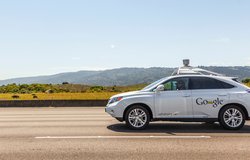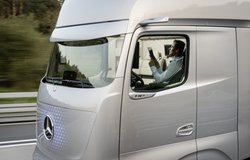Google’s self driving cars and Android Auto apps gets closer to reality

(c)iStock.com/JasonDoiy
Google has made a series of announcements related to connected car tech, but at two different levels. On the one hand, the search giant has announced hopes its self-driving cars will gain official release within five years, while elsewhere the Android Auto app has been announced, which lets users interact with their smartphones more safely when on the road.
You’ll need a little bit more than just the app to get started with Android Auto, however; users will need an Android 5.0 or...











